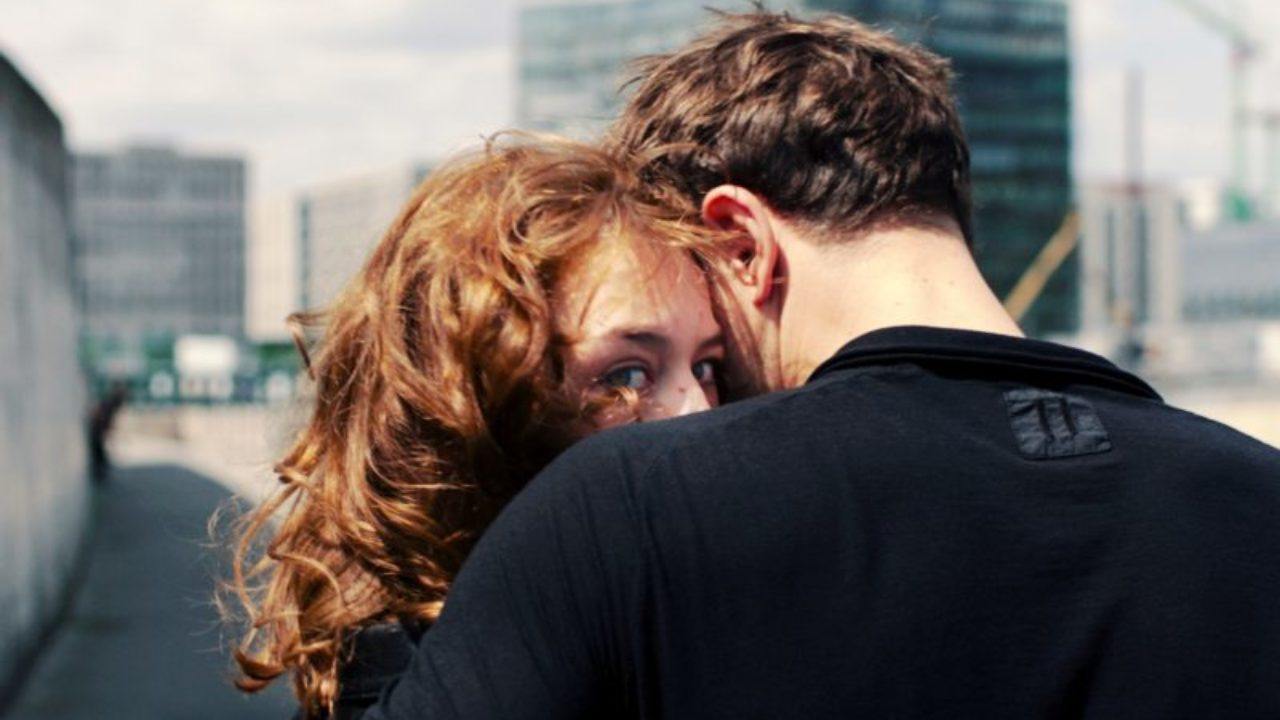“If you leave me, I’ll have to kill you,” Undine (Paula Beer) tells her cheating soon-to-be-ex-boyfriend Johannes (Jacob Matschenz) in the opening moments of Christian Petzold’s Undine. In any other movie, this might be a Glenn-Close-in-Fatal Attraction-style threat. In Petzold’s modern-day urban fairy tale, however, it’s hinting at a deeper, mysterious truth, one that sits quietly to the side until the right moment, when it suddenly, tantalizingly reasserts itself. Undine, which takes its cues from the ancient European myth that gave us The Little Mermaid, is a platonic ideal of an arthouse film. It’s understated, odd and engrossing. It seems like one kind of movie before it swerves deliciously into something else.
Beer’s Undine is a historian with expertise on Berlin’s urban development. There are hints from the very beginning, starting with her odd declaration to Johannes, that there’s something different about her. Undine hears voices calling to her in the water. When she first encounters her next great love, Christoph (Franz Rogowski) at a cafe, the occasion is punctuated by the restaurant’s aquarium suddenly exploding. On a date, Christoph, an industrial diver, takes Undine on a dive to the bottom of a river, where he’s found a metal plate attached to a bridge with her name on it.
Christoph is earnest and adorably goofy, the kind of guy who administers emergency CPR while singing the Bee Gees’ “Stayin’ Alive” out loud to keep the rhythm. Before long, Undine has completely moved on from Johannes, but a chance encounter with her ex and a tragic accident–or possibly the fulfillment of a curse–compel her to carry out the vengeful duty she once swore.

Undine’s power lies primarily in the central relationship between Undine and Christoph, investing us in their connection before everything abruptly changes. Their relationship isn’t necessarily earth-shattering, but it is lovely. Rogowski, who previously starred in Petzold’s Transit along with Beer, has a distinctive face and presence that make him a uniquely endearing romantic lead. He’s unimposing, dad-joke sweet and affectionate with Beer’s Undine in a way that feels lived-in, and Beer, for her part, fully reciprocates that chemistry. This is a couple you desperately want to see thrive, sleep in on Sundays and generate impossibly cute, precocious kids.
When things do finally turn fantastical in Undine’s last third, all that emotional place-setting pays off handsomely. We feel Undine’s pain and anger, and Beer carries out her character’s mission with clear-eyed understanding that feels at once cold and resigned. Once she’s done it, Petzold delivers an abrupt shock followed by a brilliant leap forward that serves to switch out the perspective and keep us on our toes. For most of its 92-minute running time, Undine is a pleasant, intriguing romantic drama. In its last 30 minutes, it jolts into magical realist melodrama, using the established stakes to maintain the audience’s interest as the story takes one strange turn after another.
Magical realism aside, Undine feels grounded in the portrayal of its central relationship, and refreshingly subtle in regard to the central mystery of its heroine’s identity. It’s a comfortably enigmatic experience, the kind that’s well-suited to local arthouse theaters where you can grab a drink and process with friends afterward. We’re slowly starting to get back to a space where we can do that, but even if you can’t get back to a theater just yet, Petzold’s latest is worth checking out and pondering.
A
“Undine” is in select theaters and on digital and VOD platforms Friday.



